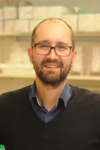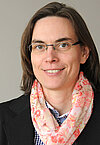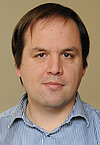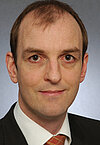ERC Consolidator Grants

Prof. Dr. Lutz Nuhn (2024)
Würzburg chemist Lutz Nuhn is an expert in nanoparticles that function like cabs. He designs the particles in such a way that they pick up medical active ingredients as passengers and take them to their intended destination in the body. Once the work is done, the particles should degrade by themselves without leaving any residue.
The professor intends to use the two million euros in funding from the European Research Council to develop innovative nanoparticles to further improve RNA drugs. These include, in particular, RNA vaccines, which were used on a global scale for the first time during the coronavirus pandemic. They enable the production of vaccines to be started quickly when new pathogens appear and the vaccines to be quickly adapted to new variants of the pathogens if necessary. Mehr

Prof. Dr. José Pedro Friedmann Angeli (2023)
With his work, the Würzburg professor wants to contribute to innovative therapies against cancer. The prizewinner is a pioneer in the field of ferroptosis. This special form of cell death is triggered by the accumulation of oxidized lipids and is associated with many pathological conditions, including cancer and neurodegeneration. "Recent studies have shown that inducing ferroptosis in cells can be an effective strategy against neuroblastomas and other difficult-to-treat tumors. This can be achieved by influencing central metabolic pathways that regulate ferroptosis," says Friedmann Angeli. Neuroblastomas are malignant tumors that occur in children. The project is based on the pioneering work carried out by Friedmann Angeli's group. Among other things, his team has identified two important systems involved in the regulation of ferroptosis: the enzyme glutathione peroxidase 4 (GPX4) and the ferroptosis suppressor protein 1 (FSP1). These will now be the focal point for further research. Read more

Prof. Dr. Elmar Wolf (2023)*
The so-called "ductal adenocarcinoma of the pancreas" is by far the most common form of cancer of the pancreas. In contrast to many other types of cancer, the mortality rate for this form of cancer has not improved in recent years and the chances of finding a cure are still low. Elmar Wolf has set himself the goal of changing this. The cancer researcher is Professor of Tumor Systems Biology at the Department of Biochemistry and Molecular Biology at the Julius Maximilians University of Würzburg (JMU). The development of new therapies against pancreatic cancer is the focus of his new research project, which has now been approved by the European Research Council. The Consolidator Grant, endowed with around two million euros, will enable him to work on this project over the next five years. read more
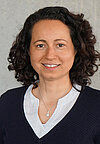
Prof. Dr. Cynthia Sharma (2022)
Cynthia Sharma studies how bacteria adapt to changing environments, focusing on RNA-binding proteins, about which very little is known so far. For this, she has now received an ERC Consolidator Grant endowed with two million euros. read more
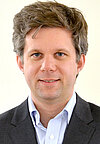
Prof. Dr. Lars Dölken (2022)
Virology professor Lars Dölken has once again received a Consolidator Grant worth two million euros. With this award from the European Research Council, he is advancing a new project on herpesviruses. read more
Prof. Dr. Andrea Christina Felfe de Ormeño (2020)*
Social context in the mirror of human development: With an ERC Consolidator Grant of two million euros, Christina Felfe will research over five years in cooperation with kindergartens and schools throughout Germany what role parents, classmates, teachers and general socialization processes play in the emergence of group preferences. read more
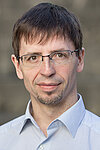
Prof. Dr. Dominic Grün (2018)**
With the ERC grant of two million euros, Dominic Grün is researching the hematopoietic bone marrow using single-cell sequencing and genome-wide molecular imaging read more
Prof. Dr. Wolfgang Kastenmüller (2018)
Wolfgang Kastenmüller studies the development of special immune cells that show promise in treating cancer. He has now been awarded an ERC Consolidator Grant worth nearly two million euros for his research. read more
Prof. Dr. Claudia Höbartner (2016)**
Claudia Höbartner is working on DNA and RNA enzymes. For one of these projects, the European Research Council granted her an "ERC Consolidator Grant" worth over two million euros. The goal is to develop fluorescent RNA enzymes that can be introduced into living cells to visualize their activity "live" using fluorescent signals.
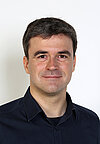
Prof. Dr. Christian Häring (2015)**
The Häring group aims to understand the molecular machinery that organises eukaryotic genomes.
Prof. Dr. Roland Mitric (2015)
Helping advance solar energy technology: Professor Roland Mitric was awarded a 1.5 million euro ERC Consolidator Grant that will allow him to push on with his research of energy and charge transfer dynamics in complex molecules and nanostructures. read more
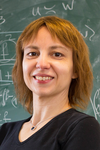
Prof. Dr. Stefanie Petermichl (2015)**
Commutators, Hilbert and Riesz transforms, Shifts, Harmonic extensions and Martingales. More
Prof. Dr. Tobias Brixner (2013)
With the funds from his ERC Consolidator Grant (2.7 million euros), Professor Tobias Brixner develops new methods for basic research on molecular processes at the Institute of Physical and Theoretical Chemistry. read more [german version]
Prof. Dr. Jürgen Groll (2013)
Biomaterials that can help open up new possibilities in the field of medicine - this is what Professor Jürgen Groll is working on as the Chair of Functional Materials in Medicine and Dentistry. He was awarded an ERC Consolidator Grant worth just under 2 million euros. read more



